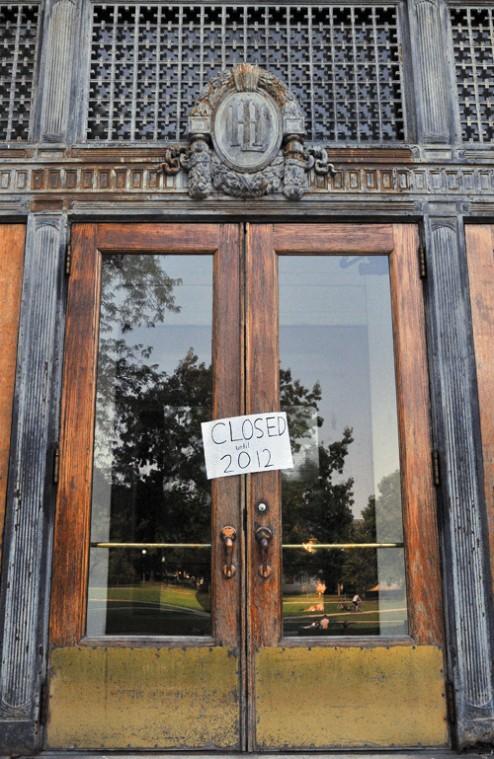Lincoln Hall starts to empty as renovation begins
September 2, 2008
When University classes resumed last week, Lincoln Hall stood dormant on the otherwise bustling Quad.
With minor renovations to the ailing 97-year-old building underway, all classes originally scheduled to be held in Lincoln Hall were moved to various locations across campus. As of this week, approximately 60 Communication teaching assistants are being uprooted from their offices in the building’s basement as a result of safety concerns that have been raised during the preliminary phases of construction.
Matthew Tomaszewski, assistant dean for space and facilities in LAS, said that while no known health risks exist in the basement, the decision to evacuate was made by the Office of the Provost in order to prevent any from developing.
“Because of its age, we know that there is asbestos is in the building,” he said. “As far as we know, none of it is exposed, but once construction begins it will be.”
Communication teaching assistants also reported mold and poor air quality in their offices.
Get The Daily Illini in your inbox!
With the help of Associate Registrar for Facility Management and Scheduling Jen Themanson, Tomaszewski has been pushing for a complete renovation of Lincoln Hall for a number of years.
The building is not conducive to an academic environment in its current condition, he said.
Despite the hassle that comes along with moving, Director of Graduate Studies in Communication David Tewksbury said those in his department are relieved to see that repairs are finally being started.
“This is something that needs to happen,” he said. “Lincoln Hall absolutely needs to be renovated.”
Tewksbury cited extremely low ceilings, exposed piping and the general uncleanliness of the Lincoln Hall basement as the primary reasons his teaching assistants needed to be moved out.
“It’s a safety issue,” he said.
The timing of the move, however, has caused problems for some whose offices are housed in the basement.
“It really happens at the worst possible time,” said Dan Wilbrandt, president of the Communication Graduate Student Association. “Especially for Ph.D. students. They have to pack up four or five years of materials, books and papers, and essentially box up their graduate life during the beginning of the school year.”
Communication teaching assistants were told in an e-mail from Tewksbury late last week that their offices would be moved temporarily to an empty classroom on the first floor and subsequently to a new location on Sixth Street. The move will take place sometime in September at the University’s expense.
Teaching assistants and professors in other parts of the building will remain in their Lincoln Hall offices for now but have been told that they too will be moved out of the building at a time still to be determined.
Officials are hoping to have the building completely evacuated of all remaining offices by next spring.
Some of Lincoln Hall’s remaining inhabitants, including sociology teaching assistant Take Ono, cannot decide if the move will be worth the trouble at this point. But most agree that Lincoln Hall is desperately in need of repair.
On his part, Ono believes the University has always had the ability to renovate the building, but that the University disproportionately allocates its funds in favor of other colleges whose graduates have the potential to one day make more money.
“It’s not that the University doesn’t have the money. They have it, but it’s only for certain purposes,” he said. “Otherwise, how are there all these new buildings?”
But University officials said they are paying a great deal of money to move their employees out of a building that is becoming unsafe, and to completely renovate the historic building would require a significant amount of funding from the state.
A capital bill that would have allotted $55 million for renovation to the building failed in July. Other previous attempts by legislators and University administration to request money from the state were also unsuccessful.
But despite that history, Tomaszewski and Themanson are hopeful that this year, legislators will agree to fund the proposed project.
If state funds are approved, they hope to have Lincoln Hall open and fully operational once again by 2012. However, if the bill fails yet again, the building will remain empty for even longer and Themanson will be forced to continue trying to squeeze a large number of classes into a limited amount of space in other buildings across campus.
“The big issue is that we cannot conduct classes in this building because they’re not conducive to learning,” said Communication department head Barbara Wilson. “If any state legislator were to walk in here and see the facilities, I think they would be very disappointed that students would have to try to learn and work here in a building that is falling apart.”
Lee Ann Sangalang contributed to this report.







